
I love to travel, but I don’t have much money. Although long-haul flights and luxury holidays are out of my reach at the moment I’ve managed to see a fair bit of the world for not very much, and perhaps my budget limitations have meant that I’ve seen some interesting places I might have otherwise missed out on.
I find online budget travel tips not that great though. They seem to swing from “save money by only eating ityereal bars and sleeping on trains on your trip” to “cram in thirty museums in one day with this special ticket” to “get this special Air Miles credit card only available in Florida, and book your flights at 3am on Thursdays Alaska time”. I want to eat nice food from the cuisine of the country in question; sleep in a clean, safe and comfortable hotel room in a convenient location; and get a chance to explore and see things properly, not treating sights like a tick list to complete as quickly as possible. I don’t want to be cold, hungry, exhausted, or put myself in danger; this is supposed to be fun. I just don’t have a lot of money to spend.
Being on a tight budget also means you have to be smart with your money. If you can only afford one restaurant meal a day, you don’t want to waste it on bad food. You don’t want to buy a week’s travel pass, and then realise that the city is so small you just walk everywhere. A bit of research can really save you a lot.
There is also the issue of safety. Unfortunately we don’t live in a society that treats people equally. There are lots of forms of adventure that are not available to women, people of colour and people that are visibly not straight or not cis because of the much higher risk of sexual assault and violence that they have to deal with.
As in the famous Sylvia Plath quote: “Yes, my consuming desire is to mingle with road crews, sailors and soldiers, barroom regulars—to be a part of a scene, anonymous, listening, recording—all this is spoiled by the fact that I am a girl, a female always supposedly in danger of assault and battery. My consuming interest in men and their lives is often misconstrued as a desire to seduce them, or as an invitation to intimacy. Yes, God, I want to talk to everybody as deeply as I can. I want to be able to sleep in an open field, to travel west, to walk freely at night…”
So for me, tips like “oh you can sleep in the station for free” are just totally useless. It’s no good finding a really cheap hotel if it’s in such a sketchy area that you feel totally on edge and scanning for risk at all times. I have often travelled alone in breaks between work assignments abroad, and because I have often suddenly had time free from work when none of my friends were available. I want to be safe and relaxed when I travel, but without spending a lot of money.
In the past year I have been to Paris, Denmark (Copenhagen, Roskilde and Helsingør), Sweden (Malmö and Lund), Italy (Lake Garda and Verona), Glasgow and various trips to other cities in England on very low budgets (like £60-70 per day max). I managed to do a four day Paris trip for £150 last year including the hotel and restaurant food, and still had fun. I had a free courtesy ticket from Eurostar to apologise for problems on a previous trip, which I’d been saving. It was getting near the deadline for using it though, and I was extremely underemployed and broke, and being very careful with the small amount of money I had. I wasn’t starving or desperate to pay the rent, but I had no discretionary income to spend on luxuries like trips to Paris. In the end I decided to just use it and go the weekend before my birthday, scraped up £60 from some Etsy sales, and asked for some cash in euros for birthday presents from my family, and decided to see just how much fun I could have alone for no money in Paris (it turns out a lot).
Experience I gained via work has really helped me here. I served my time working on Tourist Information desks, and also booking accommodation and travel for myself and others to fit in with ungenerous company budgets in other jobs. When I worked giving school workshops in Continental Europe, the company would book and pay for accommodation for the working week. From Friday lunchtime to Sunday evening I would be free to do as I liked (as long as I turned up at the next destination on time). I was given an envelope of cash for my per diems and travel expenses over the weekend, and was free to go anywhere I chose. As my work locations from week to week were often hundreds of miles apart, I got good at squeezing in low cost sightseeing breaks between and after the workshop bookings. Having been given cash, it was also in my interest to keep the costs as low as possible while still having fun so I could take some home.
Here are my tips to have a good time while spending very little money and causing yourself as little anxiety as possible (although a lot of it comes down to doing a little research before you go). Some of the tips are about spending money, but quite a lot of them are about using a little smart preparation to have a smooth and enjoyable time while you’re away. (When you already do these things they seem like the most basic common sense, of course).
Cheap flights and long distance train tickets

Using price comparison websites and opening booking sites in a private window to stop tracking works, but actually I find my best deals have come from signing up to the companies’ mailing lists. That’s how I’ve got things like £20 return train tickets to Glasgow. I also find it’s often cheaper to fly and return on different airlines, esp as that means you have a bigger selection of times. If it’s affordable, I always choose to fly short-haul at lunchtime, it’s so much more civilised. You don’t have to get up at the crack of dawn and worry about first trains or taxis being reliable, and you arrive at your destination with time to spare and don’t have to worry about late night transport when you get there.
Travelling for work has also made me always arrive early at the airport. I would have been in trouble with work if I’d missed the flight, and when I pay for it myself I can’t afford another flight. So, touch wood, I’ve never missed a flight yet. Being early gives you a chance to check in and board at your leisure without feeling flustered or rushed. It’s easy to waste time cheaply with a coffee or reading a book.
Figure out what you actually want from your holiday, and who you enjoy travelling with
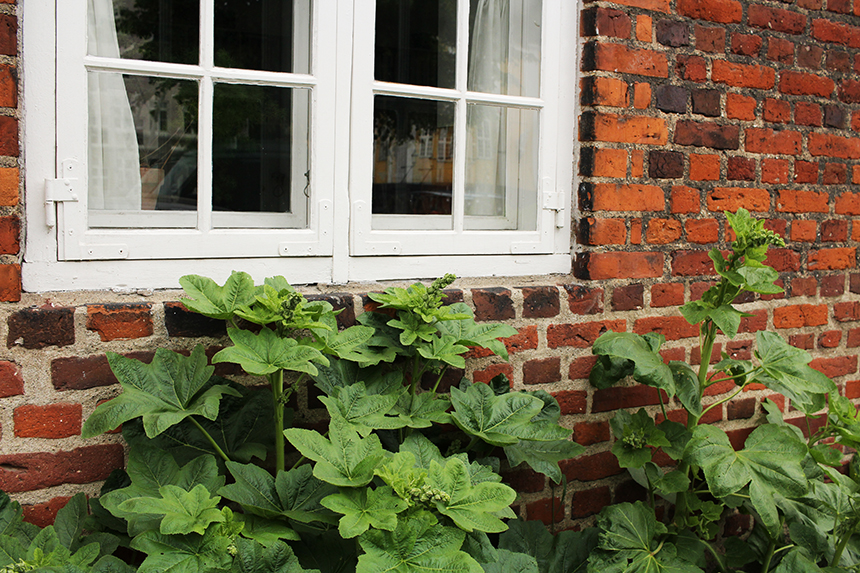
If what you really like deep down is relaxing on a beach with an all-inclusive bar, then forcing yourself to go on a hiking trip isn’t going to be much fun even if your partner or friends are really into it. People like different things when travelling, and some people you otherwise get on with great are just a bad match for holidays. It’s no fun if there’s rows or passive-aggressive conflict or it feels like someone’s going along doing things they don’t enjoy all day to keep the peace.
For instance, I love aimless wandering and looking at things, and cheerfully walk 15 miles in a day. If you hate walking or just can’t walk that much, you’d have a miserable time going away with me. I’d get really frustrated with the people who want to go to every big attraction, take some snaps, and then get to the next big destination with as little fuss between as possible. I’d be all “no, look! let’s see what’s down that little side alley. Let’s wander down to the canal just to see what’s there”.
Pack well, and be organised

A hangover from my work travel days is that I always put my passport, any tickets, medical travel insurance/E1-11 card, details of transport, a printout of the hotel booking, and a map printout of the hotel location in a plastic wallet at the top of my bag. Then I know where everything is, and have info to help me if I get lost, have some kind of problem or can’t remember information.
Call up your bank and phone company before hand to remind them that you’ve gone abroad, so they don’t think it’s fraud. The phone company will often offer you special priced bundles for things like 4g data abroad too.
Look at non-obvious destinations
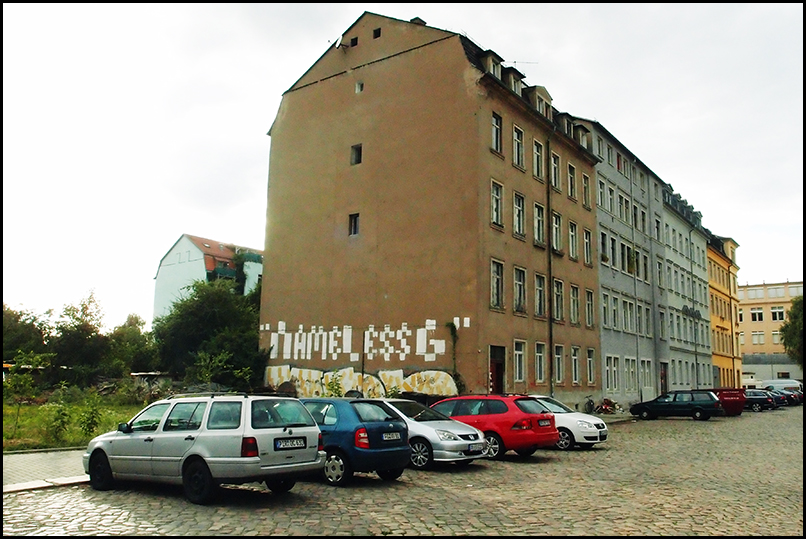
You can often have a really great trip to surprise destinations you chose for reasons such as it was on the airline’s special offer list or you could go there for free with your job. They are usually never places you would immediately have thought of for a holiday before, but are often a lot cheaper and less crowded than the big destinations, and still a lot of fun. For example I was sent to Dresden for work, and I loved it and would gladly go back. I probably never would have gone otherwise, it’s not perceived as a top tourist destination, but it’s a great city with lots of amazing buildings and fun things to do.
Of course you still need to research these places so you don’t end up spending four days on an industrial estate in the middle of nowhere.
Finding cheap hotels

I don’t use AirBnB. A couple of years ago they froze my account right before I was going on a trip and refused to explain why. I had no way of cancelling or changing my booking, and it was unclear whether my host would actually get my money (luckily she was a sweetheart, and said I could stay even if she never got the money, as it wasn’t my fault- she did get it in the end thankfully). If the host had turned me away, I don’t know if I would even have been able to get my money back. The customer service was terrible, and they immediately acted like I was some kind of criminal and had done something really bad but wouldn’t tell me why. It was all a bit Kafkaesque. Even if they had reactivated my account, I wouldn’t have used them again. From an ethical point of view, I also dislike the way they’ve turned from a way for people to rent out their spare room to an industry of dodgy landlords turning residential properties into unlicenced and unregulated hotels that negatively affect neighbourhoods and contribute to housing crises. Hotels are regulated for a reason.
My usual website I use is booking.com. The site is reliable and easy to use, and has both hostels and hotels, and I can usually find a decent hotel for £30 a night. (Obviously a dorm in a hostel is cheaper, but I’m in my 30s and feel like my days of regularly bunking with 12 snoring strangers are over). It also gives you plenty of information about the hotel and its location so you can check it out elsewhere. I’ve also found good deals via lastminute.com. I avoid sites I’ve never heard of before, because I’m wary of them being a scam.
On cheap hotels, you want somewhere that’s clean, safe, and in a convenient location. Places in far-flung suburbs often turn out to be incredibly inconvenient for actually seeing any of the city you’ve come to visit, and often turn out to be in places like industrial estates or next to airports. A dirty hotel is miserable, of course. You’re not going to get luxury, but there are plenty of decent, clean, no frills budget hotels. Check out reviews of the hotel on other sites, research the name of the neighbourhood and look at the street on Google Street View to check that you’ll feel safe there. This is an area where a little bit of research and paying attention to your gut feeling really pays off.
Never change money at the airport
It’s a ripoff. Find out what the fees and exchange rates are like with your bank. If they are good (mine with the Co-op Bank are), and you have a standard chip & pin Visa or Mastercard debit card, just use your card abroad in cash machines and shops (don’t forget to notify your bank before you travel so it doesn’t get flagged as fraud). If the rates are bad, or your card is an old-fashioned magnetic swipe (here’s looking at you USA) or a card network specific to your country, then of course don’t.
Pre-paid Visa travel cards can vary dramatically in how good a deal they are, so you need to check them really carefully before buying. With cash it’s often a better deal to pre-book travel cash rather than walk in to an exchange. When ordering travel cash research what the cheapest deal is in your country, because it can really vary dramatically from exchange to exchange. Places like your bank or insurance company often have special deals for their own customers. In the UK, the Post Office are often a good deal- they will have Euros and US Dollars to hand, and can order other currencies in for delivery in a couple of days.
Find out what times and days things operate in your destination
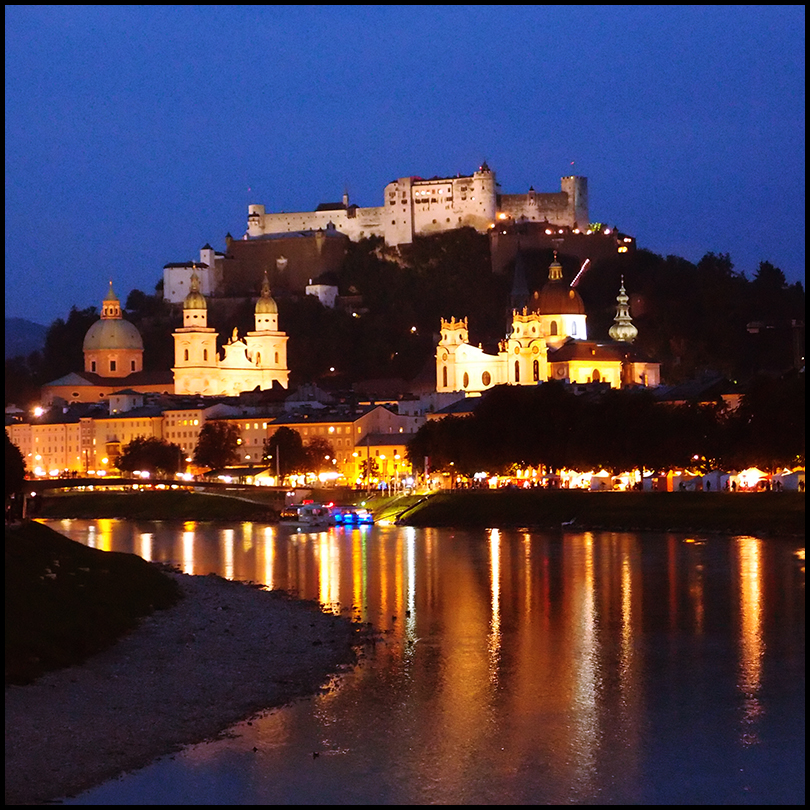
Every country operates on different timetables, and travelling and sticking to your home country’s times can cause you immense frustration or lead to you missing out on something you wanted to do because it’s closed. Trying to get lunch at 2pm in Denmark, have a good dinner at 7pm in Spain or find an open shop in France at lunchtime is not going to work out well.
It’s also useful to find out what times and days are considered normal, but off-peak times for doing things in that country, as there are often significant discounts or special offers available. For example in the UK there are often generous special deals in bars and restaurants on Monday nights. Countries that charge for museum entry often have free Sundays on certain dates.
Public holidays are of course different in every country, and also need to be checked. Is it the fun kind of public holiday with parades and free events, or is it the boring kind where everything is shut?
Find out about discount cards, their availability, and whether they’re worthwhile
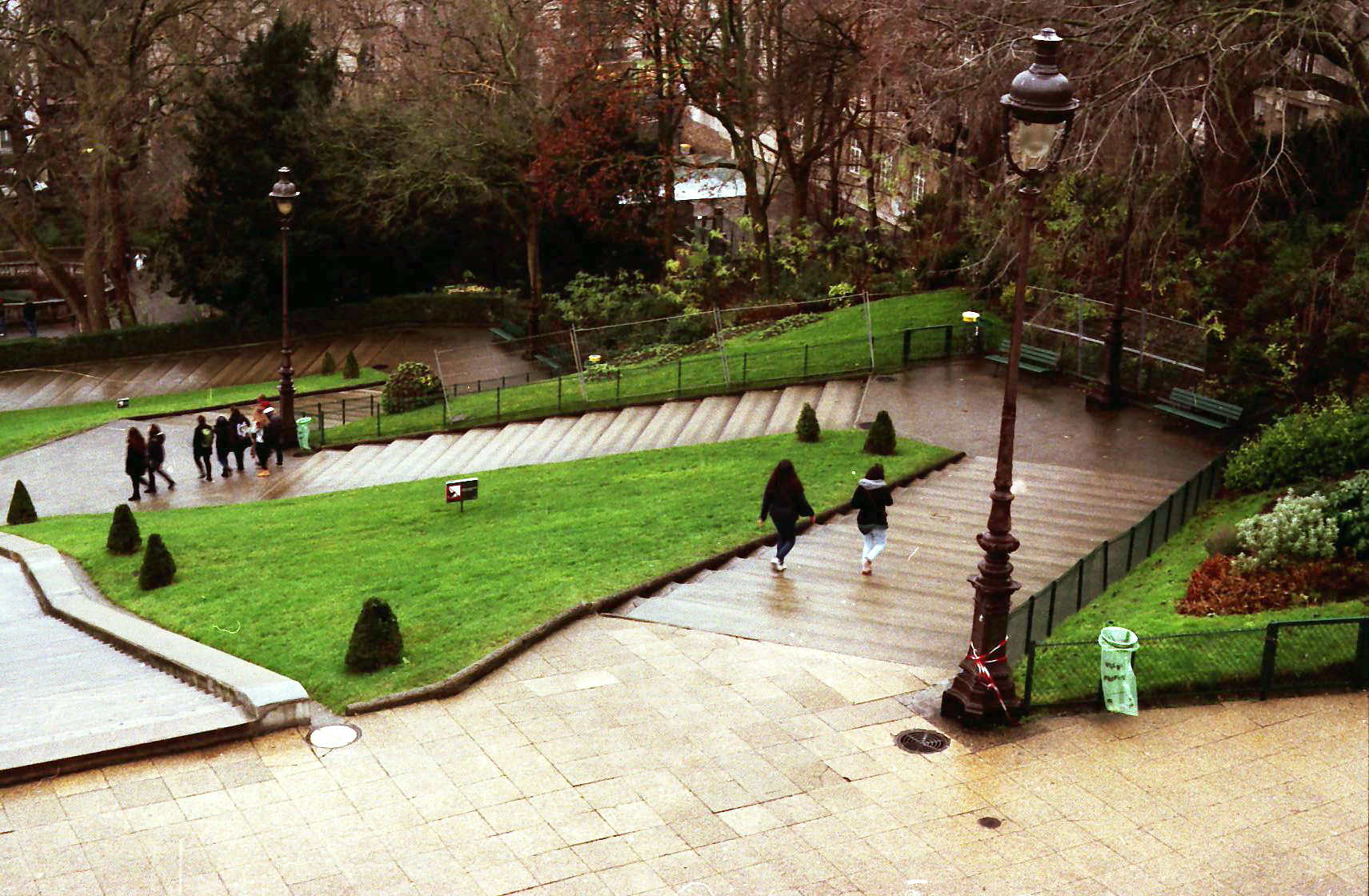
There are lots of special passes and discount cards available for purchase by tourists, a bewildering array sometimes. Some of them are great, some have very niche uses, and some are a rip-off. There’s such a huge variety.
There can also be surprising ways to save money- like for instance you see a chocolate bar in the supermarket that has a ticket promotion on it. A lesser-known one in London is the train ticket 2-for-1 entry to tourism attractions deal- you bring a leaflet from the train station, and a National Rail ticket for that day, and you get an attraction ticket free.
Sometimes the way to save money defies logic. For instance, in London, if you want to visit both the Tower of London and Hampton Court Palace, it’s cheaper to buy a member’s card that lasts for a year and includes unlimited entry, than it is to buy two individual tickets.
If you want to take advantage of the special offers, find out where you can buy the cards. Some are heavily promoted and available in lots of places, and some are quite obscure. Some tourist discount cards can only be bought outside the destination country, so you need to order them before the trip.
The all-inclusive passes to cities need to be carefully weighed up, as their value for money varies dramatically. They can also make you feel like you have to chase round and give every attraction a cursory visit to get your money’s worth, when actually you would have enjoyed just visiting one of the places properly.
In the end though, although it’s worth seeing if you can save money on the things you want to see, don’t waste a vast amount of time researching these endless deals, because it can turn into a huge time waster.
Get to grips with transport before you arrive
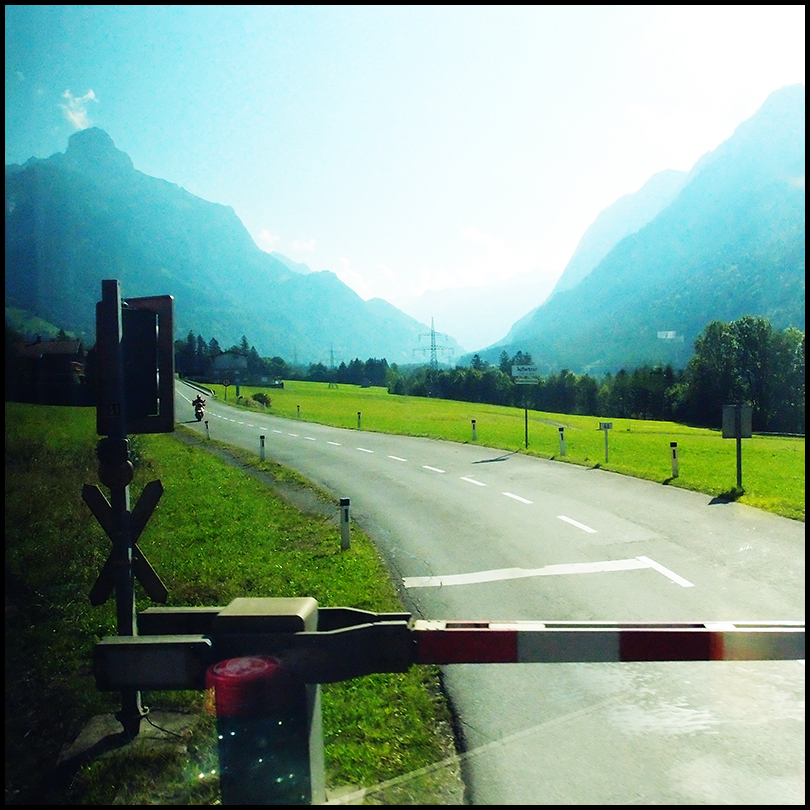
This kind of budget travel doesn’t really cover hiring a car (and a car is a hindrance in lots of the cities you might go on a short break to), so you’re going to be dealing with local public transport. It will save you a massive amount of hassle and stress if you find out about the transport before you arrive.
Figure out your route from the airport or station to the hotel or hostel and write it down. Have a look at the map, and familiarise yourself with how it relates to reality. Some cities use a real map and just add the stations, and some places like London use a diagrammatic map unrelated to distance to show you the connections more clearly.
Find out about the tickets before you arrive, so you know what kind of prices to expect, and what the arrangements are. Is it paper tickets or contactless cards? Can you use the same tickets or cards on multiple forms of transport? Where do you buy the tickets? Are there geographical zones for tickets, or is it done on travel time? How much are you going to be using the transport? What is the cheapest deal for you and how do you get it? Is there any kind of special cheap ticket for tourists or students? Is it worth your while buying any of the discount cards for regular travellers? If you have disabilities, is the transport accessible? Here are some examples of how dramatically things can vary:
Italy– you buy undated tickets before boarding (bus tickets come from cafes or newspaper shops with a sign in the window), and stamp them in a machine on the train platform or on the bus. The local tickets are valid for so many hours rather than a certain destination. Ticket inspectors will give you a hefty fine if you didn’t stamp your ticket, no excuses accepted.
UK- In London buses do not take cash, you need an Oyster card with funds loaded, or a bank card that works with the contactless reader. Buying a paper ticket for the Tube works out much more expensive than getting an Oyster card. If you are staying for a week, it’s much cheaper to load a week’s pass onto your Oyster card. The very centre of the city is compact, but as you get further out, everything gets more and more spread out. The Underground dates from the Victorian era, and the older stations are terrible for accessibility issues.
Other cities don’t have integrated ticketing in the same way, and might even have rival bus companies in the same town.
For inter-city travel on the trains, it’s dramatically cheaper to book ahead of time on the website. There are also one year discount cards available for under 25s, over 65s, couples, families and for certain regions that cost about £30 and give a 33% discount. If you use them more than once long distance they can pay for themselves.
Germany– The ticket vending machine marks the time and date on your ticket for you. There are no gates at the station, but a lot of plain clothes ticket inspectors who can hand out hefty fines. Intercity trains have several different categories of speed and luxury, and the prices can vary dramatically depending on what train type you take.
Paris– You can get a contacless Navigo card for weekly passes, paper singles, or carnet books of single tickets, usable on the metro and buses. Paris (within the périphérique at least) is compact and walkable, so I usually just get a carnet of 5 tickets or so to use as backup. The metro stations are all really close to each other.
Morocco– Trains have a standard ticket arrangement, and buses take cash on board. There are also the grand taxis, which are minibuses which follow set routes and can be hailed like a taxi. You share the ride with 4-6 other passengers, and the driver gives you a quote for your fare, which is paid in cash.
Finding places to visit
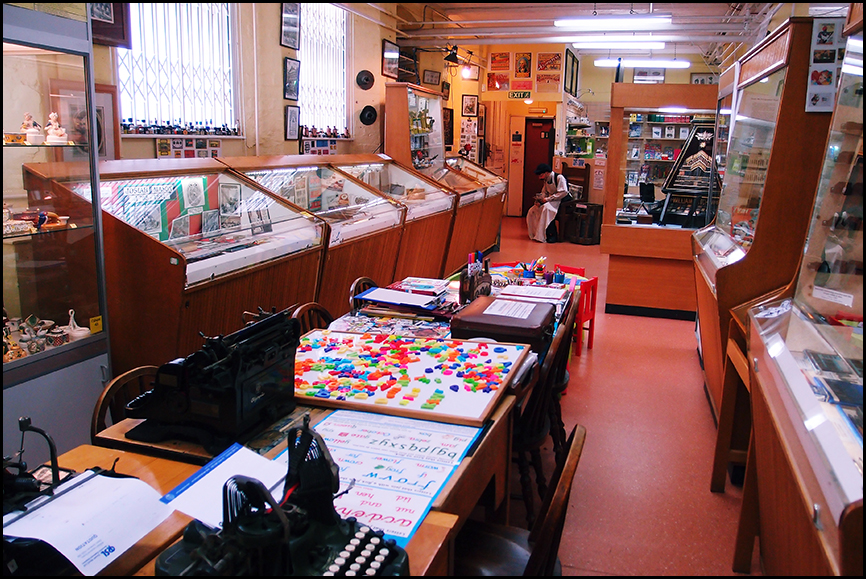
Every city has its obvious places to visit. Some of them actually aren’t all that much fun. Every student I taught at summer camp in the UK was desperate to go to the shops on Oxford Street and see Leicester Square, but a lot of people who live in London happily avoid them as much as they can because they’re crowded and stressful and have really bad air pollution.
In terms of guide books, my choice is Lonely Planet, esp as they have the context section at the back telling you about the culture and history of the country. There are plenty of decent travel guides around though.
Here’s some of the other ways I find other things to see:
Atlas Obscura – this is one of my favourite sites to browse anyway, hundreds and hundreds of interesting and unusual places around the world
Wallpaper guide apps– these are guidebooks and phone apps produced by expensive lifestyle magazine Wallpaper. The restaurant and shop recommendations are often ludicrously expensive for me, but they have lots of other recommendations that are free like interesting buildings to see or neighbourhoods to wander
Art Fund map (UK only)– shows you museums, galleries and artworks large and small near your location
Happy Cow– helps you find local vegan and vegetarian restaurants
Local What’s On magazines- if you can understand some of the language, you can find out lots of great things from these. Bigger places might even have an English one.
Brush up on the language
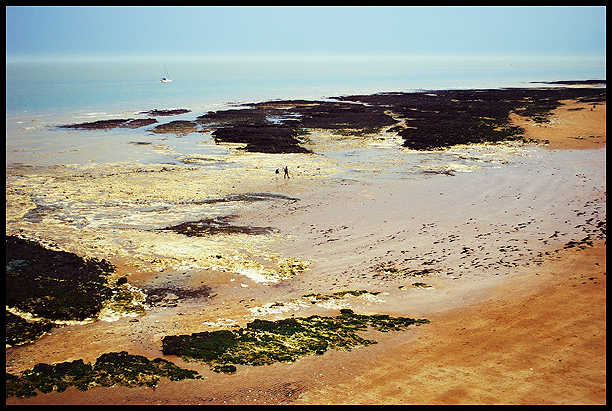
Knowing useful phrases in the local language will save you so much stress, make the local people you meet like you much, much more, and can be achieved with a few study sessions. Here are some tips I wrote earlier for learning languages.
Essentials you need to know:
Hello & Goodbye
Yes & No
Exit
Entrance
Please
Thank you
I would like
How much is this
The bill, please
Can I pay by card
Just looking thank you
Numbers up to 100
Here you are or other little local polite phrases
Can you help me
Sorry, I don’t speak (language)
Can you speak (language)
I don’t understand
Names of food and drink (especially any you strongly dislike or can’t eat for whatever reason)
Any medical issues or special dietary needs you have
If the country you’re visiting doesn’t use the Roman alphabet like English (or the same alphabet as your native language), then learning the letters (or some basic words like exit, entrance in the case of Chinese and Japanese) will make your life a million times easier, and also often turn mystifying words into familiar ones. For example ресторан says “restoran” in Russian and τρενο says “treno” in Greek and سِينِمَا says “sinima” in Arabic.
The Google Translate phone app is also great for understanding signs and reading packaging or menus- you can take a photo of text now, and it will translate it for you. It isn’t always perfect, but it can help you avoid some nasty surprises with things like food. I even use it at home sometimes. I bought a bulk bag of (delicious, delicious) Korean pancake mix, but the instructions were all in Korean, and it turned them into something comprehensible.
Food
Those budget travel tips that say things like “fill up a huge plastic bag with bran, and just eat that the whole trip to save money” or “just eat at mcdonalds to give you more time for sightseeing and avoid having to eat foreign food” just make me sad. I like good food, and one of my main reasons I like travelling is to eat and try new things. I’m vegetarian, and never really had much trouble anywhere I’ve been getting decent food. The worst place for me was surprisingly Denmark, but that’s not because they didn’t have meat free options, it’s just that they mostly had mayo on, which I hate. I still had some nice dinners there though. Happy Cow is a good site for finding vegan and vegetarian food.
In North America, the cheapest way to eat is often chain fast food, but this isn’t true in a lot of other places. The best way to eat well cheaply is to find out what the most popular discount method for high quality food is in that country. In some places the set menu is the discount king, in other places it’s buffets, street stalls or eating at certain times. Lunch is often a lot cheaper than dinner.
Before you go, familiarise yourself with the cuisine of that country, so you know what to expect. It will also help you pick from menus because you have a better idea of what the dishes are and whether you’ll like them or not (especially if you have to follow a special diet). As I said in the language section, learning the names of foods will also go a long way to avoiding nasty surprises. It’s also worth finding out if there’s any group that forms a significant minority in the country you’re visiting, who also have delicious food. For example Mexican chefs are thin on the ground in London, but there’s plenty of great Indian and Bangladeshi restaurants there.
It’s also worth looking at what the worst reviewed restaurants are for your destination. Chances are a lot of them in more popular cities will be located in expensive central locations and rip off tourists with bad microwaved food. The Angus Steak House chain is a London group of restaurants that are a total joke with British people because the food is famously terrible, and you don’t know anyone who goes there, yet they’re still in business in Central London, one of the most expensive places on earth. Then you meet people who’ve been on holiday to London and complain about how bad the food was, and then it turns out they ate at the Angus Steak House and McDonalds on Leicester Square.
Another way to save money is to go for the vegetarian option, even if you’re a meat eater. Often the meat-free option even at expensive restaurants is a lot, lot cheaper. Buying bread, fruit and bakery items from the supermarket to take with you in the day is also good way to save money and feed yourself while walking round. When I’m travelling on a budget, I budget myself one good restaurant meal a day of around £15-20, either the free breakfast from the hotel (or if that isn’t included, supermarket bits), and the other meal supermarket bits.
The joy of wandering

If you are physically able to do it, wandering around is free, fun, good exercise and lets you see all sorts of interesting little bits of your destination you would otherwise never have seen. Probably my main holiday activity is wandering around, poking about a bit. Take some photos, do some drawings, have a think. Here’s a whole wikipedia article abut the joy of the flâneur and the dérive, the artistic wander. Over-planning, and over-scheduling leaves no time for pleasant wandering.
Postcards are a low budget pleasure
Sending postcards costs very little, you can enjoy writing them while drinking a coffee, and the people who receive them also get their mailbox brightened up. Winning all round, there. I send whole sheafs of postcards any time I go anywhere.
Leave a Reply